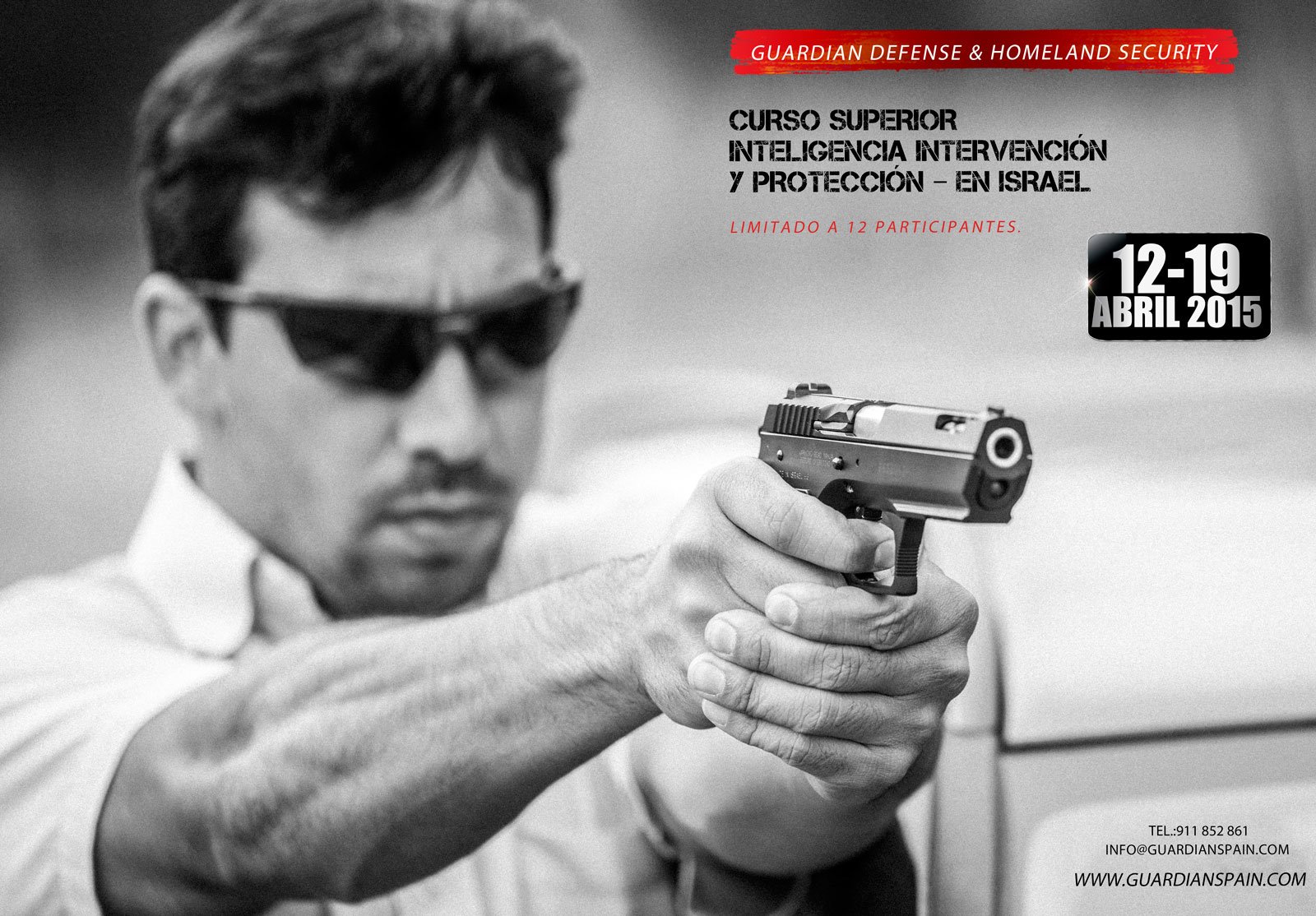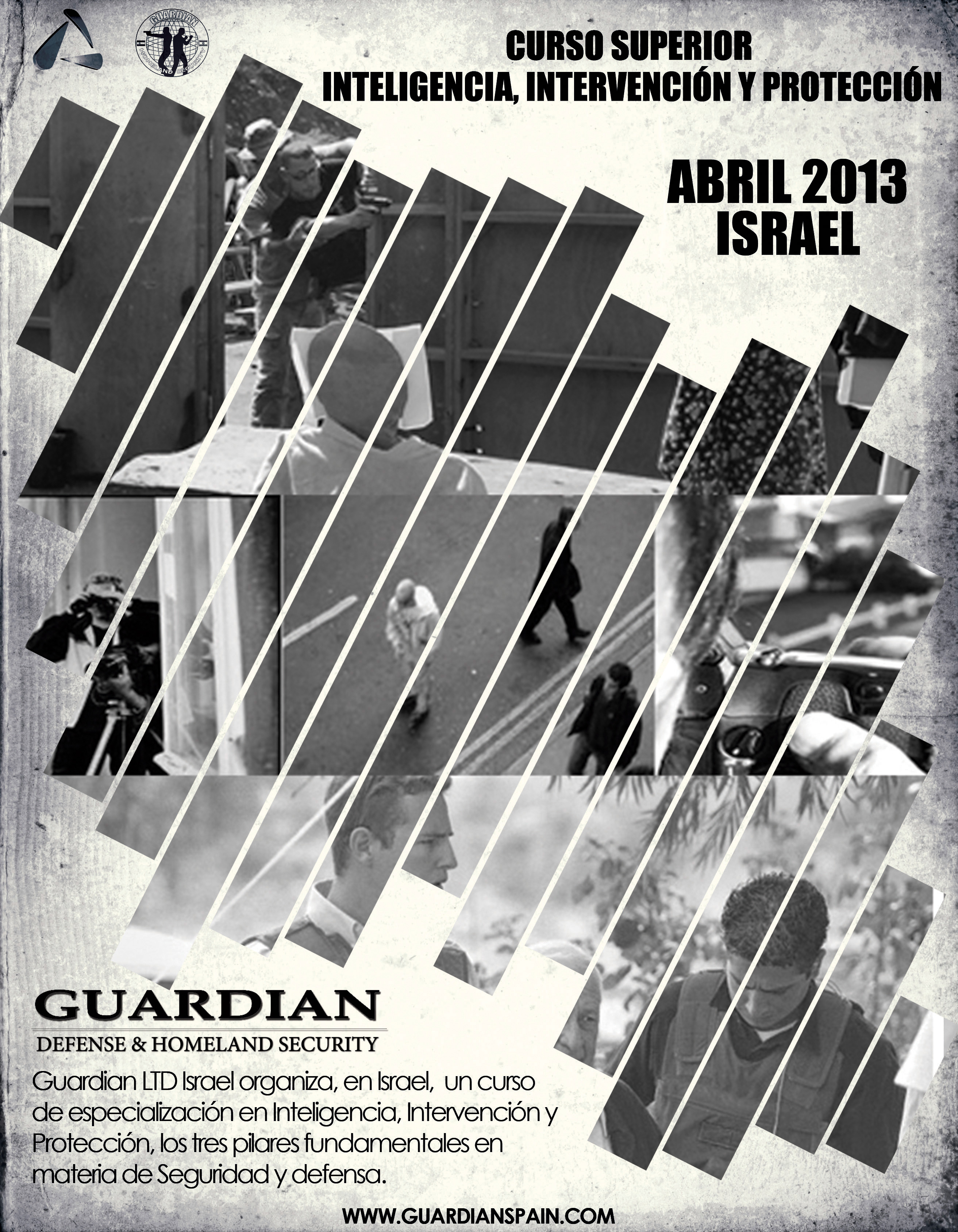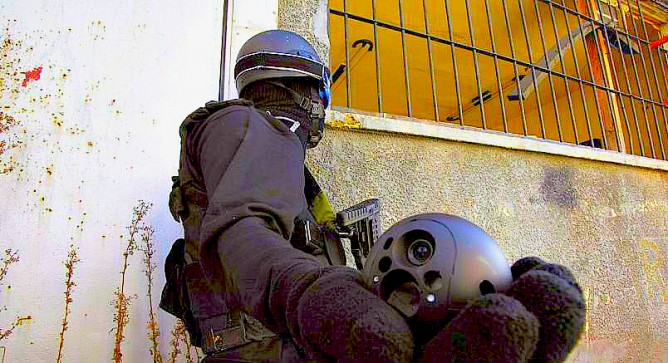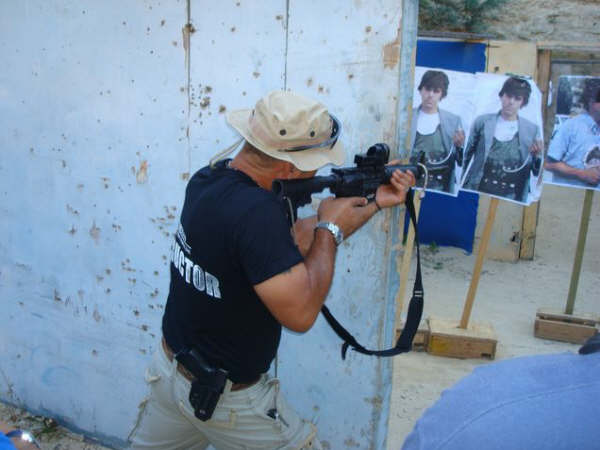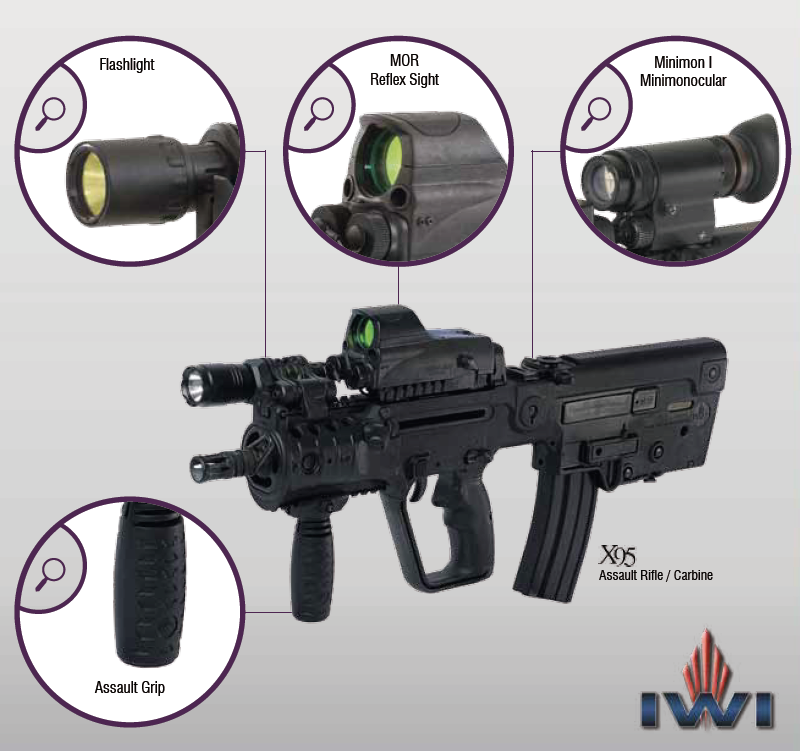Ilan Arzooan: “New terrorist threats require more advanced training in shooting techniques and self-defense techniques”.
Professional training in security and surveillance is a growing sector. Threats from international terrorism and new urban combat situations force security professionals to improve their theoretical and practical training. This professional enrichment is achieved through training courses offered by different security companies located in our country. One of the most prestigious and recognized in Spain is Guardian LTD Israel, a company founded by members of the special security services of the State of Israel. Ilan Arzooan is one of its managers and we have talked to him about the national training of security and defense professionals.
-On what pillars is the training you provide in your company based?
The most important thing about the courses we offer at Guardian is that practically everything is based on practical training. In fact, if we talk about percentages, practically 90% of the course activities are purely practical, so the direct contact with reality is much higher. The remaining 10% is devoted to theoretical training, which we carry out through the projection of DVDs showing real situations of attacks, assassinations, etc. -What
are the main subjects of your courses, to which of them do you attach most importance? Our courses consist of 5 basic subjects: shooting techniques, combat in urban areas, protection drills, self-defense, operational driving and, finally, tracking and counter-surveillance techniques. Of these, the most important is undoubtedly shooting techniques. Every day of the course we dedicate several hours to firearms training. In Spain, we only train students with handguns, usually with Glock pistols, while in the courses we teach in Israel we also shoot with assault rifles and submachine guns (M16, UZI, etc.). In the shooting training we adopt the same advanced techniques used by the Israeli special forces.
[youtube_video] yiKhcSPR99E [/youtube_video]
-What
would you highlight from the rest of the subjects? Besides shooting, another very important subject is self-defense. This subject is also taught every day of the course and is based on the famous Israeli Krav Maga technique. This is a martial art used by the special forces of the Israeli army, which stands out above all because it uses very effective techniques and its training process is very fast. Krav Maga is based on hand-to-hand combat and on knowing how to act in an empty-handed confrontation against an opponent with a bladed weapon (knife, razor, baton…). This technique enjoys great acceptance in Spain, as it responds very well to the Spanish legislation, which penalizes the professional who uses a firearm against an opponent armed with a knife. In this way, the professional learns to repel an aggression without the need to use his firearm.
-Where are your courses given in Spain?
Guardian has been giving courses in Spain since May 2006. The place where we carry out this theoretical and practical training is in the city of Soria, specifically in the National School of Security Specialties (E.N.E.). Here we have a section where, for example, we teach the subject of urban combat. We build and simulate buildings, where students practice entry, perform rescue operations, etc.. Everything always with the maximum possible realism.
-What do you consider more important for a security professional: knowing how to respond to an attack, or knowing how to prevent it?
If we talk about importance, both are important. But we always tell our students that if an attack occurs, it is a failure. Then,

you can always respond effectively to the attack and save it in the best possible way, but first you should have known how to prevent it. This is why we teach the subject of monitoring and counter-surveillance techniques, so that the professional learns how to gather information, analyze it and thus anticipate a possible attack. In this sense, we teach them techniques to recognize if someone is following or watching them. These are techniques to avoid both pedestrian and motorized following. It is, therefore, a subject of great importance to which we dedicate practically a whole day of our training courses.
-After the whole course, how do you carry out the final evaluation, what elements or aspects do you value the most?
At the end of each course, we conduct what we call protection drills. In this case, we reproduce a situation as realistic as possible and we use Simunition FX weapons to control and count the shots. This is the most important test and the one that marks the level of each student, because for the simulation we use all the elements that the professional will later encounter in real life: we set up an audience, use radio equipment, vehicle entrances and exits… This is where we test whether the professional can effectively resolve this situation, bearing in mind that we also try to produce the same tension and adrenaline that is experienced in a real situation. -What
is the profile of the students who attend your courses, and what requirements do they have to meet? Basically, they are members of law enforcement agencies (local police, national police, Civil Guards, or military) or security guards and escorts with a professional degree. In other words, we only train professionals. As for the requirements, apart from a good theoretical and practical level in shooting and security matters, it is also important that the professional knows how to “know how to be”. It must be taken into account that on many occasions, the escort may accompany a high-ranking politician or a well-known businessman, and therefore, he must know how to behave and act with discretion in these situations.
-What is the level of training of Spanish professionals compared to the rest of Europe?
In general terms, Spanish professionals are well trained at a theoretical and practical level, although it is also true that the new terrorist threats that these professionals face today require further training in the technical and practical aspects. Progress must be made in this area in order to be able to respond effectively to this new international situation.
-Once the course is over, what are the main professional opportunities for your students?
Guardian has its own database of all the students who have completed one of our courses. In many occasions, we use this database when a Spanish security company calls us looking for professionals. On the other hand, our company also has its own network of escorts and guards (we are not qualified for guards, only escorts), so if we consider it necessary, they can also work with us. In the case of the private sector, when the guards or escorts complete our course, we grant them official diplomas that have a joint recognition of Guardian LTD Israel and the Spanish Association of Escorts. Another added value that our courses provide is that, once completed, in addition to the diploma I just mentioned, we also grant the professional a magnetic card that authorizes them to work as escorts in other countries and in international companies.
 -What is the demand for these vocational training courses in Spain?
-What is the demand for these vocational training courses in Spain?
Very high, in fact, in all the courses we have held so far in Spain we have filled all the places. In this regard, it should be noted that places in all our courses are limited and usually fill up quickly. Since May 2006, when we gave our first course, we have completed 9 courses in Spain and 4 in Israel. Occasionally, we also conduct institutional courses for special law enforcement units.
-Finally, what is the cost of the courses provided by Guardian LTD?
The courses in Spain are of one week’s duration, are limited to a maximum of 14 places, and cost 1,800 euros per student (VAT not included). The courses we teach in Israel have a duration of two weeks and a cost of 3,850 euros (VAT exempt), while the higher course of shooting and combat in high-risk areas, which also takes place in Israel, lasts one week and its cost is 2,300 euros (VAT exempt). In any case, you can find more information about Guardian on our website www.guardianspain.com.
Interview with Ilan Arzooan – Guardian Spain Director (Armas.es)
 you can always respond effectively to the attack and save it in the best possible way, but first you should have known how to prevent it. This is why we teach the subject of monitoring and counter-surveillance techniques, so that the professional learns how to gather information, analyze it and thus anticipate a possible attack. In this sense, we teach them techniques to recognize if someone is following or watching them. These are techniques to avoid both pedestrian and motorized following. It is, therefore, a subject of great importance to which we dedicate practically a whole day of our training courses.
-After the whole course, how do you carry out the final evaluation, what elements or aspects do you value the most?
At the end of each course, we conduct what we call protection drills. In this case, we reproduce a situation as realistic as possible and we use Simunition FX weapons to control and count the shots. This is the most important test and the one that marks the level of each student, because for the simulation we use all the elements that the professional will later encounter in real life: we set up an audience, use radio equipment, vehicle entrances and exits… This is where we test whether the professional can effectively resolve this situation, bearing in mind that we also try to produce the same tension and adrenaline that is experienced in a real situation. -Whatis the profile of the students who attend your courses, and what requirements do they have to meet? Basically, they are members of law enforcement agencies (local police, national police, Civil Guards, or military) or security guards and escorts with a professional degree. In other words, we only train professionals. As for the requirements, apart from a good theoretical and practical level in shooting and security matters, it is also important that the professional knows how to “know how to be”. It must be taken into account that on many occasions, the escort may accompany a high-ranking politician or a well-known businessman, and therefore, he must know how to behave and act with discretion in these situations.
-What is the level of training of Spanish professionals compared to the rest of Europe?
In general terms, Spanish professionals are well trained at a theoretical and practical level, although it is also true that the new terrorist threats that these professionals face today require further training in the technical and practical aspects. Progress must be made in this area in order to be able to respond effectively to this new international situation.
-Once the course is over, what are the main professional opportunities for your students?
Guardian has its own database of all the students who have completed one of our courses. In many occasions, we use this database when a Spanish security company calls us looking for professionals. On the other hand, our company also has its own network of escorts and guards (we are not qualified for guards, only escorts), so if we consider it necessary, they can also work with us. In the case of the private sector, when the guards or escorts complete our course, we grant them official diplomas that have a joint recognition of Guardian LTD Israel and the Spanish Association of Escorts. Another added value that our courses provide is that, once completed, in addition to the diploma I just mentioned, we also grant the professional a magnetic card that authorizes them to work as escorts in other countries and in international companies.
you can always respond effectively to the attack and save it in the best possible way, but first you should have known how to prevent it. This is why we teach the subject of monitoring and counter-surveillance techniques, so that the professional learns how to gather information, analyze it and thus anticipate a possible attack. In this sense, we teach them techniques to recognize if someone is following or watching them. These are techniques to avoid both pedestrian and motorized following. It is, therefore, a subject of great importance to which we dedicate practically a whole day of our training courses.
-After the whole course, how do you carry out the final evaluation, what elements or aspects do you value the most?
At the end of each course, we conduct what we call protection drills. In this case, we reproduce a situation as realistic as possible and we use Simunition FX weapons to control and count the shots. This is the most important test and the one that marks the level of each student, because for the simulation we use all the elements that the professional will later encounter in real life: we set up an audience, use radio equipment, vehicle entrances and exits… This is where we test whether the professional can effectively resolve this situation, bearing in mind that we also try to produce the same tension and adrenaline that is experienced in a real situation. -Whatis the profile of the students who attend your courses, and what requirements do they have to meet? Basically, they are members of law enforcement agencies (local police, national police, Civil Guards, or military) or security guards and escorts with a professional degree. In other words, we only train professionals. As for the requirements, apart from a good theoretical and practical level in shooting and security matters, it is also important that the professional knows how to “know how to be”. It must be taken into account that on many occasions, the escort may accompany a high-ranking politician or a well-known businessman, and therefore, he must know how to behave and act with discretion in these situations.
-What is the level of training of Spanish professionals compared to the rest of Europe?
In general terms, Spanish professionals are well trained at a theoretical and practical level, although it is also true that the new terrorist threats that these professionals face today require further training in the technical and practical aspects. Progress must be made in this area in order to be able to respond effectively to this new international situation.
-Once the course is over, what are the main professional opportunities for your students?
Guardian has its own database of all the students who have completed one of our courses. In many occasions, we use this database when a Spanish security company calls us looking for professionals. On the other hand, our company also has its own network of escorts and guards (we are not qualified for guards, only escorts), so if we consider it necessary, they can also work with us. In the case of the private sector, when the guards or escorts complete our course, we grant them official diplomas that have a joint recognition of Guardian LTD Israel and the Spanish Association of Escorts. Another added value that our courses provide is that, once completed, in addition to the diploma I just mentioned, we also grant the professional a magnetic card that authorizes them to work as escorts in other countries and in international companies.  -What is the demand for these vocational training courses in Spain?
Very high, in fact, in all the courses we have held so far in Spain we have filled all the places. In this regard, it should be noted that places in all our courses are limited and usually fill up quickly. Since May 2006, when we gave our first course, we have completed 9 courses in Spain and 4 in Israel. Occasionally, we also conduct institutional courses for special law enforcement units.
-Finally, what is the cost of the courses provided by Guardian LTD?
The courses in Spain are of one week’s duration, are limited to a maximum of 14 places, and cost 1,800 euros per student (VAT not included). The courses we teach in Israel have a duration of two weeks and a cost of 3,850 euros (VAT exempt), while the higher course of shooting and combat in high-risk areas, which also takes place in Israel, lasts one week and its cost is 2,300 euros (VAT exempt). In any case, you can find more information about Guardian on our website www.guardianspain.com.
-What is the demand for these vocational training courses in Spain?
Very high, in fact, in all the courses we have held so far in Spain we have filled all the places. In this regard, it should be noted that places in all our courses are limited and usually fill up quickly. Since May 2006, when we gave our first course, we have completed 9 courses in Spain and 4 in Israel. Occasionally, we also conduct institutional courses for special law enforcement units.
-Finally, what is the cost of the courses provided by Guardian LTD?
The courses in Spain are of one week’s duration, are limited to a maximum of 14 places, and cost 1,800 euros per student (VAT not included). The courses we teach in Israel have a duration of two weeks and a cost of 3,850 euros (VAT exempt), while the higher course of shooting and combat in high-risk areas, which also takes place in Israel, lasts one week and its cost is 2,300 euros (VAT exempt). In any case, you can find more information about Guardian on our website www.guardianspain.com.

